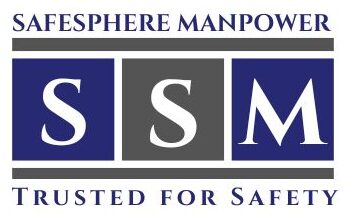
Security Guards Training
Company Overview
Understanding the mission, vision, and values of SafeSphere.
Overview of services offered and the role of security guards within the company.
1.2. Code of Conduct
Professional ethics and behavior expected from security personnel.
Dress code, punctuality, and general workplace etiquette.
Basic Security Training
2.1. Role and Responsibilities
Understanding the primary duties of a security guard.
Legal and ethical considerations in security work.
2.2. Patrol Techniques
Conducting effective patrols and monitoring premises.
Reporting and documenting incidents.
2.3. Access Control
Procedures for verifying identities and managing entry points.
Use of access control systems and visitor management protocols.
Advanced Security Training
3.1. Surveillance and Monitoring
Operation and maintenance of CCTV and surveillance equipment.
Techniques for effective monitoring and threat detection.
3.2. Emergency Response
Handling various types of emergencies (fire, medical, security breaches).
Evacuation procedures and coordination with emergency services.
3.3. Conflict Resolution
De-escalation techniques and managing difficult situations.
Communication skills for resolving conflicts peacefully.
Specialized Training
4.1. Event Security
Crowd management strategies and controlling large groups.
VIP protection and special event security protocols.
4.2. Residential Security
Providing security in residential communities and managing access.
Interaction with residents and handling domestic issues.
4.3. Commercial Security
Securing commercial premises and protecting assets.
Loss prevention and dealing with shoplifting incidents.
4.4. Industrial Security
Security measures for industrial sites and sensitive areas.
Use of K-9 units and handling hazardous materials.
Physical Fitness and Self-Defense
5.1. Fitness Training
Importance of physical fitness in security work.
Regular exercise routines and maintaining physical health.
5.2. Self-Defense Techniques
Basic self-defense moves and techniques.
Use of non-lethal weapons (e.g., batons, pepper spray).
Technology and Equipment Training
6.1. Security Systems
Installation and operation of security systems (alarms, sensors).
Troubleshooting common issues with security equipment.
6.2. Communication Tools
Use of radios, intercoms, and mobile communication devices.
Effective communication protocols during regular operations and emergencies.
Customer Service Skills
7.1. Interpersonal Skills
Professional interaction with clients and the public.
Building rapport and maintaining positive relationships.
7.2. Handling Complaints
Addressing and resolving client and customer complaints effectively.
Ensuring customer satisfaction and maintaining a positive image.
Legal and Compliance Training
8.1. Security Regulations
Understanding local laws and regulations related to security work.
Compliance with legal requirements and company policies.
8.2. Report Writing
Writing clear and concise incident reports.
Documentation standards and confidentiality.
Training Methods
Classroom Instruction
Theoretical lessons on various aspects of security work.
Interactive sessions with experienced trainers.
Practical Exercises
Hands-on training in real-life scenarios.
Role-playing exercises to simulate security incidents.
On-the-Job Training
Shadowing experienced security guards during their shifts.
Gaining practical experience in actual work environments.
Continuous Learning
Regular refresher courses to update skills and knowledge.
Advanced training sessions for career development.
